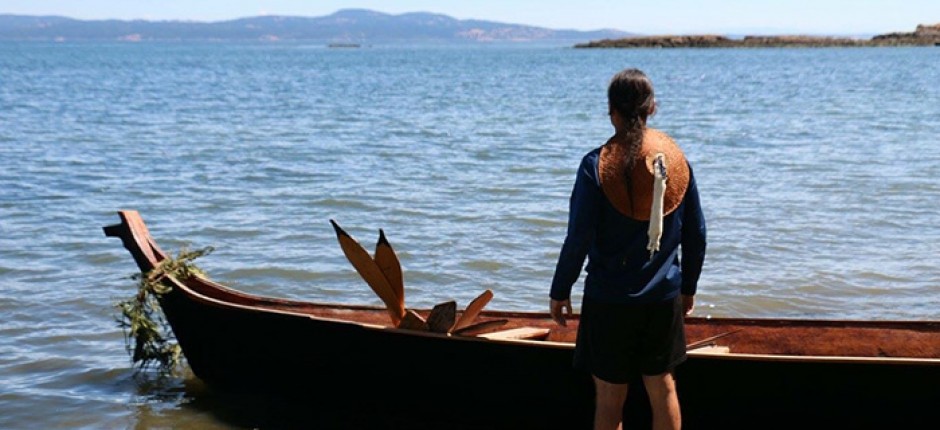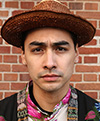By Julian Brave NoiseCat
- About
- J-Talks
- CJF Awards
- Award Categories
- 2025
- 2024
- 2023
- 2022
- 2021
- 2020
- 2019
- Fellowships
- CJF Indigenous Health Journalism Fellowship
- CJF Bursary for BIPOC Student Journalists
- CJF-CP News Creator Fellowships
- CJF Black Journalism Fellowships
- CJF-CBC Indigenous Journalism Fellowship
- Jury
- CJF-CBC Indigenous Journalism Recipients
- 2024 CJF-CBC Indigenous Journalism Fellows
- 2023 CJF-CBC Indigenous Journalism Fellows
- 2022 CJF-CBC Indigenous Journalism Fellows
- 2021 CJF-CBC Indigenous Journalism Fellows
- 2020 CJF-CBC Indigenous Journalism Fellows
- 2019 CJF-CBC Indigenous Journalism Fellows
- 2018 CJF-CBC Indigenous Journalism Fellows
- 2017 CJF-CBC Indigenous Journalism Fellows
- 2016 CJF-CBC Indigenous Journalism Fellows
- 2015 CJF-CBC Indigenous Journalism Fellows
- 2014 CJF-CBC Indigenous Journalism Fellows
- Tom Hanson Photojournalism
- Next-Generation Journalists Bursary Program
- Research and Education
- Supporters
- DONATE NOW

- About
- J-Talks
- CJF Awards
- Award Categories
- 2025
- 2024
- 2023
- 2022
- 2021
- 2020
- 2019
- Fellowships
- CJF Indigenous Health Journalism Fellowship
- CJF Bursary for BIPOC Student Journalists
- CJF-CP News Creator Fellowships
- CJF Black Journalism Fellowships
- CJF-CBC Indigenous Journalism Fellowship
- Jury
- CJF-CBC Indigenous Journalism Recipients
- 2024 CJF-CBC Indigenous Journalism Fellows
- 2023 CJF-CBC Indigenous Journalism Fellows
- 2022 CJF-CBC Indigenous Journalism Fellows
- 2021 CJF-CBC Indigenous Journalism Fellows
- 2020 CJF-CBC Indigenous Journalism Fellows
- 2019 CJF-CBC Indigenous Journalism Fellows
- 2018 CJF-CBC Indigenous Journalism Fellows
- 2017 CJF-CBC Indigenous Journalism Fellows
- 2016 CJF-CBC Indigenous Journalism Fellows
- 2015 CJF-CBC Indigenous Journalism Fellows
- 2014 CJF-CBC Indigenous Journalism Fellows
- Tom Hanson Photojournalism
- Next-Generation Journalists Bursary Program
- Research and Education
- Supporters
- DONATE NOW

2017 CJF-CBC Indigenous Journalism Fellow

In the winter of 2017, I was an erstwhile bureaucrat working in the NYC Department of Housing Preservation & Development. I spent my days wrapping my head around the mammoth contours of housing policy, the affordable housing crisis and New York politics. I spent my nights writing. This was the winter our people gathered at Standing Rock to fight the Dakota Access Pipeline—
the Black Snake. While this moment called me to action, it also called me to my passion: the written word.
I provided commentary on the struggle at Standing Rock for The Guardian and Jacobin, an American magazine. I honed my craft as a columnist and polemicist, working to perfect the art of the short and sharp op-ed and the longer analytical essay.
These pieces were fulfilling. I am proud of them all. But, they often felt like small gestures—soundbite articulations of principles and positions written for a public just beginning to grapple with the reality of colonization and the potential inherent in Indigenous rights and sovereignty. I wanted to do more than put my proverbial fist in the air through the power of the pen. I wanted to dance on the page—to tell stories that suggested rather than stated, that conveyed ideas through the persuasion of narrative rather than the force of belief.
But in this digital age, it is difficult for young writers—and particularly Indigenous writers—to access the training, resources and time to do this type of storytelling. It takes resources, relationships and opportunity to go out into the field to report and tell the stories of our people. Scrolling the internet for opportunities to get out and write, I came across the Canadian Journalism Foundation’s CBC Indigenous Fellowship.
I applied on a whim, hoping to travel along and report on the annual Tribal Canoe Journey in the Pacific Northwest. Through a stroke of luck, I won the award and had the incredible luck to embark on a journalistic adventure, writing a five-part series on the Canoe Journey for the CBC. In addition to the CBC series, I wrote a feature for the December issue of Canadian Geographic and a short essay on the Canoe Journey for the forthcoming Indigenous Atlas of Canada, for which I also wrote the Foreword.
Through this experience, I made connections with many remarkable journalists. Steph Brown, Tim Fontaine and the team at CBC Indigenous and CBC Manitoba trained and supported me through the duration of the fellowship. The Canadian Journalism Foundation connected me to some of the leading publications and journalists in Canada like Duncan McCue and Connie Walker of the CBC. I also connected with Kate Lunau, an editor at Vice Motherboard, for whom I have written since.
I still have much to learn about the craft of reporting and writing, but I can say with confidence that the Canadian Journalism Foundation provided a remarkable opportunity for a young Indigenous writer like me to pursue my passion and produce work of which I am proud.
Check out Julian Brave NoiseCat’s pieces for CBC News:
Part 1: Tribal Canoe Journey: Tribes depart Washington on epic voyage
Part 2: ‘The border is not our border’: Tribal canoe trip to B.C. navigates tradition and history
Part 3: ‘We’re at the mercy of the water’: Battling the waves on the tribal canoe trip
Part 4: Tribal Canoe Journey: Understanding the ‘cannibal dance’
Part 5: ‘Like a reawakening’: Tribal Canoe Journey concludes with hope for future
Lenard Monkman was the other 2017 fellow. Read about his experience.
Read about the CJF-CBC Indigenous Journalism Fellowships, opening in January 2018.
THE CANADIAN JOURNALISM FOUNDATION THANKS THE GENEROUS SUPPORTERS OF THIS AWARD:


Rosemary Speirs, CJF Honorary Governor
Isabel Bassett, former chair and CEO, TVO
 |
|
| info@cjf-fjc.ca | |
| 77 Bloor St. West, Suite 600, Toronto, ON M5S 1M2 | |
| (437) 783-5826 | |
| Charitable Registration No. 132489212RR0001 | |
ABOUT US
Founded in 1990, The Canadian Journalism Foundation promotes, celebrates and facilitates excellence in journalism. The foundation runs a prestigious awards and fellowships program featuring an industry gala where news leaders…
Newsletter
Ⓒ2022 The Canadian Journalism Foundation. All Rights Reserved.
powered by codepxl
